Gill James's Blog
December 15, 2020
Keeping the Lid on Social Media

Social media can be a boon and it certainly can help the isolated writer feel more connected with the world. During the Covid 19 pandemic it has probably been a life-line for many. It is powerful tool. But it also may become a tyrant and we have to make sure we master it and it doesn’t master us.
I start my day with a visit to either Twitter, Linked-in or Facebook. This time of year though, I play with my Jacquie Lawson advent calendar for a short while before I settle down to work.
Then at various intervals thought the day I’ll pop into my social media platforms. Also, when I trawl through my emails after lunch I will also see some notifications from my various social media accounts which I will follow up. But I only do this for half an hour. I then move on to answering only the important emails and the rest of them are ditched.
I’m not too concerned how many likes etc. I get because I only like what I genuinely like and have time to give some attention to. It’s a bonus when it happens. It’s not a disaster if it doesn’t.
I’m also quite careful that for every proactive piece I put out there I respond to four other messages. In addition only about one in ten of my posts will be about self-promotion.
Sometime I will get involved in a good old political argument and it can get tricky. Then you have to remember that you can just walk away from it and mute or disconnect form anyone who is giving you grief. It’s good thought that we can express our views openly and find like-minded people. So, there are clearly some advantages and some disadvantages:
Advantages You can connect with people from all over the world. You can connect with people you’ve never met.If all else has failed when you have an issue with a big company a tweet can perform miracles (we got our broadband fixed that way) If you have a sound idea others will promote it for you – think of the power of the retweet.It offers free advertising.You may also come across opportunities through it. You can get rid of nuisances easilyImage by Gerd Altmann from Pixabay
· It can become addictive.
· It can become time-consuming.
· You may feel under pressure to keep up.
· You may encounter trolls.
Bottom line adviceEnjoy it and keep it under control. It is there to serve you not to rule you.
December 10, 2020
Great review for Babel


From Amanda Jones
From the very beginning Babel grasped my attention as the Peace Child is needed so much in today’s world. Then as I read further echoes of Coronavirus greeted me as we delved into a futuristic realm not far from reach of our own imagination.
The scene is set with Switch Off brought about from a population so healthy and disease-free that death needs to be a controlled administrative function. But Babel is not all about bleakness, we learn about Kaleem as he comes to understand his life’s purpose and origins wrapped into a personal story of love and desire.
Rozia adds interesting foresights as chapters open her diary and we read her thoughts. Then the dark nature of humanity is brought to us with Kevik. We are led to hope for change, but will it be for the better? Disability and discrimination is brought upon an innocent race but soothed with a true kindness.
As we near the halfway mark we learn about the creation of the Babel book and a break into our familiar, present world and author-editor relationships are explored; much to my delight as an author with a printing/graphic design background.
Gill cleverly and imaginatively weaves realistic possibilities into the book as she draws from our own past. Does history repeat itself? There are certainly echoes of wrongs and rights but this future world with a highly technical civilisation brings intrigue as with all hierarchy. Will they listen? What will going backwards create?
Babel leaves me with a truly possible reality we are almost on the cusp of and reading the book in 2020 Lockdown brought shivers of foresight. Enjoy entering this world and follow the hope of peace.
December 8, 2020
A Conversation with another contributor to The Best of CafeLit 9: Hannah Retallick
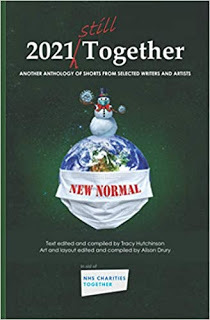
Hannah has two stories in this book as well as The Best of CafeLit 9 and some of our other publications.
1. So, Hannah, what made you decide to write for CafeLit?
A desire for my work to be read! Several of my writer friends already wrote for CaféLit, they suggested it to me, and I joined them by submitting a story or two. I keep thinking of stopping, but 19 publications later…I can stop whenever I like though. Promise.
2. Please don't stop. We enjoy your stories. How did you pick the drinks to go with your stories?
I don’t always consider the accompanying drink until after I’ve written a story…and then I wish I’d given it forethought! In ‘Unspoken, Unheard’, which is a waitress’s frustrated stream of consciousness, she refers to a customer’s ‘weird’ request for a Double Espresso Decaf – that one was easy. In ‘They Want’, a woman is frustrated by her family’s arguing and selfishness at Christmas and finally loses it, screeching as many Christmas carols as possible with her drink raised – it was Baileys, so that was easy too. (Mmm, Baileys. Baileys in coffee. Mmm. Anyway…) If there isn’t a drink mentioned, I tend to go with the overall atmosphere. I don’t overthink it. In ‘Think Pink’, a man reacts to his wife painting the wall bright pink and concludes that her happiness is worth it – Pink Lemonade seemed fitting somehow, fresh and light and, well, pink.
3. Interesting!
WWhich do you prefer? Flash or short story. Why this form for your contributions this time?
One was a short story and the other two flash. I favour flash because I can hold the whole idea in my head in one go and it don’t take long to write – the first draft, that is. I find the shorter the story, the longer it takes to edit (per word). It feels amazing when it finally clicks into place though.
4. What makes a good story for CafeLit?
Something memorable, with strong characters and narrative. The shorter the story the better, in my opinion – it’s potent. Also, by the time I’ve collapsed and sipped my afternoon tea, I feel as if my brain cells could fall into the cup, so it helps if I don’t have to concentrate on reading for too long! I have a short attention span and am easily distrac– What was the question?
5. What’s your latest writing news?
I’ve had several stories published in anthologies recently, including Bridge House’s Mulling it Over and Transformations. I’m also excited to have two stories included in 2021 Still Together. It’s the second of two books raising money for NHS Charities Together, complied by a fellow-student from the Open University, Tracy Hutchinson. I didn’t submit anything for the first, 2020 Together, but I’ve read it and I was hugely entertained and moved. They would make great Christmas presents.
December 3, 2020
A reminder about one of my most important books
 Clara will not be daunted. Her life will not end when her beloved husband dies too young. She will become a second mother to the young children who live away from home in order to visit a rather special school. When life becomes desperate for a particular class of disabled children growing up in Nazi Germany she takes a few risks. Is her ultimate faith in the goodness of human beings a fatal flaw that leads to her tragedy, or is her story actually one of hope?
Clara will not be daunted. Her life will not end when her beloved husband dies too young. She will become a second mother to the young children who live away from home in order to visit a rather special school. When life becomes desperate for a particular class of disabled children growing up in Nazi Germany she takes a few risks. Is her ultimate faith in the goodness of human beings a fatal flaw that leads to her tragedy, or is her story actually one of hope?"Clara's Story: a Holocaust Biography" is the second story in the Schellberg Cycle. It might be described as a tragedy or it might be described as a story of survival. In the end it is up to the reader or even Clara herself to decide.
It is labelled as fiction and it is labelled as biography. Holocaust biography. Historical fiction. It reads like fiction. It engages like fiction. It is written as a novel. But Clara Lehrs really existed, as did many of the characters in the Schellberg Cycle. We have a few, a very few verifiable facts about them. The rest we have had to find out by repeating some of their experiences and by using the careful writer's imagination.
Certainly the Schellberg Cycle examines the stories of several German Jews. Ironically Clara does not consider herself to be Jewish and sees no danger. She possibly needs Holocaust education even more than her readers do. Her dealings with Steiner Education help her to throw a little light on her situation and she becomes engaged in her own form of Holocaust resistance. So, we might even label this Holocaust fiction. Review I was unsure of how I would react to this book, as the holocaust is a very real story in our family. However, the social history starting before World War 1 and continuing to the present day, was extremely interesting and Clara herself had the attitude that where there’s hope there’s life. A well-written and thought-provoking book. TalksI offer talsk and workshops on this project. Contact me if you are interested.

December 1, 2020
Newsletter November 2020

So, we’re still pretty much locked own here in Greater Manchester. The weather is gloriously cold today, just like it should be on the 1 December. I’m speeding along with my reading and writing so it’s not all bad, though I am missing trips to coffee shops and days in the sun.
News about my writing and other creative projectsI’m still carrying on much as before: The Round Robin, the fifth book in the Schellberg Cycle, Not Just Fluffy Bunnies, and I’m still working on The Business of Writing. And of course I’m interspersing this with short stories and flash fiction.
I’ve had a couple more articles accepted in Talking About my Generation:https://talkingaboutmygeneration.co.uk/book-review-anne-of-green-gables/ and https://talkingaboutmygeneration.co.uk/st-barbaras-twigs-christmas-decorations-from-the-greenery-in-our-gardens/
I’ve also had a short story accepted with Page & Spine: https://www.pagespineficshowcase.com/gill-james.html
Arnie’s List appears on CafeLit :
https://www.cafelitmagazine.uk/2020/11/arnies-list.html
The Young Person’s Library
This month I’ve added:
Gracie Fairshaw and the Mysterious Guest a real good read for newly fluent readers. Such a treat. And I know the author personally.
The Lost Spells by Robert Macfarlane and Jackie Morris is a really beautiful book – in fact I’m making it my recommended read.
The Age Between – Personal Reflections on Youth Fiction an engaging critical text by a writer I admire. I’m pleased to read that we mainly agree on the nature of the young adult text.
Current reading recommendation The Lost Spells by Robert Macfarlane and Jackie MorrisRobert Macfarlane and Jackie Morris introduce us to some strong images of nature. As we turn the pages we can hear the wind swirling in the trees, we can feel the cold softness of the snow and we can hear the cry of the birds.
The verses make an extraordinary use of language.
The book is very tactile and is one anyone would be proud to have on their bookshelf.
It is longer than standard picture book though is divided into “chapters” with a few pages being dedicated to a particular animal or plant.
The illustrations are superb and would provide a good talking point.
Absolutely gorgeous.
Giveaway
Note: these are usually mobi-files to be downloaded to a Kindle. Occasionally there are PDFs. I’m afraid it’s a PDF this time.
The month I’m giving away my YA fantasy Veiled Dreams.I wrote this when I was recovering from finishing my PhD novel and thesis. It helped to pass the time between handing in my work and waiting for the viva. Every time I look at that I remember warm sunny days in North Wales. Oh yes, that happened sometimes and we’re talking between February and May even here.
I hope you enjoy it.
Please, please, please review it if you read it.
You can download lots of other free materials here.
Note, that normally my books and the books supplied by the imprints I manage sell for anything from £0.99 to £10.99, with most on Kindle being about £2.99 and the average price for paperback being £7.00. Writers have to make a living. But I’m offering these free samples so that you can try before you buy.
The Schellberg ProjectThe posts may be helpful for teachers who are familiar with the Schellberg stories or who are teaching about the Holocaust and also for other writers of historical fiction.
Sometimes I also write about what might be of interest to other writers.
I have just one post this month. I talk about the hardships that the young German women experienced during the 1940s. Read the post here.
School visits
I’ve suspended these until further notice. I’m now starting work on a series of on-line materials.
Some notes about my newsletters and blogsThey do overlap a little but here is a summary of what they all do.
Bridge House Authors For all those published by Bridge House, CaféLit, Chapeltown or The Red Telephone or interested in being published by us. General news about the imprints. News for writers. Links to book performance. Sign up here.
Chapeltown Books News about our books. Sign up here.
The Creative Café Project News about the project and CaféLit – for the consumer rather than for the producer. Sign up here.
Gill’s News: News about my writing, The Schellberg Project, School Visits and Events. Book recommendations and giveaways. Find it here.
Pushing Boundaries, Flying Higher News about conferences and workshops to do with the young adult novel. (infrequent postings) Sign up here.
Red Telephone Books News about our books and our authors. Sign up here.
A Publisher’s Perspective Here I blog as a publisher. Access this here.
The Creative Café Project Listings and reviews of creative cafés. See them here.
CaféLit Stories Find these here
Gill James Writer All about writing and about my books. View this here.
Gill’s Recommended Reads Find information here about books that have taken me out of my editor’s head and a reminder of the ones I’ve highlighted in this newsletter.
Gill’s Sample Fiction Read some of my fiction here.
The House on Schellberg Street All about my Schellberg project. Read it here.
Writing Teacher All about teaching creative writing. Some creative writing exercises. Access this here.
Books Books Books Weekly offers on our books and news of new books. Find them here.
The Young Person’s Library I am gradually moving the children’s book catalogue over to this site. Access it here.
Fair Submissions Find it here.
Opportunities for writers are added several times a day. Roughly once a month I send it out to a list. If you would like to be on that list, sign up here.Happy reading and writing.
Image by InspiredImages from Pixabay
November 29, 2020
How I choose books - and what that might mean for my own marketing
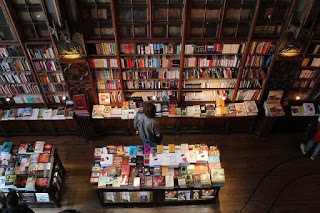
Or if you want to sell your books to me.
I buy lots of books. I have 117 pages of unread books on my Kindle. These include classics, literary texts, holiday reads, books by people I know, non-fiction mainly to do with areas I’m researching, books on creativity, books like the ones I’m trying to write, and books on the craft of writing. I’ve probably missed out come categories. Some texts are in French, German or Spanish.
Here I analysed how I’ve come to buy these books and I put these influencers in order. Then I look at what that might imply for the way I should market my own books.
Reading what I knowIf I come across a book by an author I’ve read before, and if I’ve enjoyed their work, I’ll generally buy – or borrow from the library – their new book once I’m aware of it. Here’s an interesting example:
I bought a really tatty copy of Light a Penny Candle by Maeve Binchy from a second-hand bookshop. I enjoyed it so much that I went to read all of her books, sometimes buying them as hardbacks as soon as they came out.
I’ll also often buy books written by people I know, sometimes even if they’re not quite the sort of thing I’d normally enjoy reading. It’s called friendship.
Book eventsI really enjoy these events though I do only tend to go to the ones where the sort of book I’m likely to like is being presented. Listening to the author read, finding out the story behind the book and seeing it there is its 3D reality normally persuades me to buy it.
Lists in my mailbox
I’m on a couple of email lists and bookshops like Amazon and The Hive and publishers such as Simon Shuster or Penguin Random often email me as well. I sometimes find something I like the look of there. The Hive is particularly good at knowing what I would like.
Social media
I’m actually glad that people post about their book releases on Twitter and Facebook. I’m not obliged to buy the ones that don’t interest me. I’m glad to be alerted to the ones that might interest me.
Book reviews in magazines
I often pick up reading ideas in magazine I read. These include, Mslexia, Writing Magazine, The Tome Higher Education Supplement and the Sunday Times.
BookshopsI can’t resist them. Many a time I’ve gone shopping for clothes and come back with a book.
So, now you know what to do if you want me to buy your book. And if I want to find people like me as readers of my work I must:
· Tell all my friends and acquaintances about my work. This is actually the hardest to do but it is the most effective marketing tool: WORD OF MOUTH.
· Arrange a snazzy book event. Okay, it might be a loss leader but I may pick up some of those readers who will buy my work again and again.
· Build up my email list and use it effectively.
· Put my work on social media.
· Get reviews in quality publications. This is tricky. However, both Mslexia and Writing Magazine offer feature type ads that you pay for. The prices are reasonable
· Approach local bookshops about stocking my book
In that order.
There you have it! Happy reading and marketing!
Image by InstagramFOTOGRAFIN from Pixabay
November 26, 2020
Chatting to Mason Bushell, another contributor to The Best of CafeLit 9


What made you decide to write for CafeLit?
I’d been chatting to a lady in a Facebook group. She recommended I submit stories to CafeLit. So, I checked out the website, loved some of the stories there and decided to submit some of my own.
How did you pick the drink to go with your story?
As a former bartender I do love a good drink. I would look at the content of my story and try to find drink that would suit the theme and feel of the tale
Flash or short story. Why this form for your contribution / s this time?
My contributions tend to be short stories as I find it hard to keep them a flash fiction length and still make a rounded story. I’m afraid I love too many details!
What makes a good story for CafeLit?
I think a good CaféLit story would be one that appeals to a wide audience. I feel it should be a story with a good message. It should inspire other righties to pick up their pens too.
What’s your latest writing news? And here you may provide a picture and or link to your latest book. Feel free as well to provide an image anyway.
Just now I’m eagerly awaiting the release date for my Jinn series to be published with yourselves. I’m promoting my Christmas novella Merry Mishap as well. Here are the links to Merry Mishap as well.
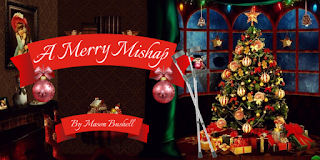
Note from editor: Mason's Jinn book is on Amazon and we are awaiting the print proof copy.
November 24, 2020
Chatting today to Amanda Jones aka Amanda Baber
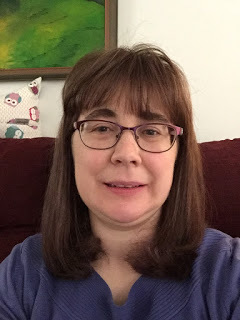
What do you write? Why this in particular?
As a child I began writing short stories and poetry. I still have the exercise book full of poems and funny pictures and then there is the collection of printed and hand-written sheets written in moments of inspiration. Even then the writer’s midnight thirst woke me from slumber to scribe my work.
Through the years I have written non-fiction to document parts of my life and learning. Then with my Missy Dog series which had been an idea for some time I launched my charity books. These delve into the world of historical fiction woven into the real lives of living creatures through dreams.
I write horror too and have one novel to seek publishing and an idea for a sequel which it opens itself up to. Then my Mum series of short stories tells her precious life story through the eyes of a child carer.
Writing is a way to educate and help people through stories and experience. I like to include morals in my fiction and inspiration in my non-fiction. It gives me a sense of purpose and stories are fun to write.
What do you write? Why this in particular?
As a child I began writing short stories and poetry. I still have the exercise book full of poems and funny pictures and then there is the collection of printed and hand-written sheets written in moments of inspiration. Even then the writer’s midnight thirst woke me from slumber to scribe my work.
Through the years I have written non-fiction to document parts of my life and learning. Then with my Missy Dog series which had been an idea for some time I launched my charity books. These delve into the world of historical fiction woven into the real lives of living creatures through dreams.
I write horror too and have one novel to seek publishing and an idea for a sequel which it opens itself up to. Then my Mum series of short stories tells her precious life story through the eyes of a child carer.
Writing is a way to educate and help people through stories and experience. I like to include morals in my fiction and inspiration in my non-fiction. It gives me a sense of purpose and stories are fun to write.
What got you started on writing in the first place?
My Mum started my writing passion. She taught me to read and write by the age of three through long sessions at the library sat on shallow boxes full of books where we searched for the next unread Dr Seuss. It was at this age that I declared that I would like to be an author when I grew up and it remained a dream until my thirties. I still can’t believe I actually reached through life to grasp it.
She always encouraged me to read and look up words I didn’t know in the dictionary or thesaurus. This inspired my love of words and I still, even now, run through the alphabet in my head when rhyming and search for a different way to express a line.
Then school and my English teachers always supported me. They saw something in my writing and urged me not to stop.
So, I taught myself to touch-type on an electric typewriter (before computers were readily available) and wrote my first novel about a dog aged 10-12. I still aim to resurrect this as it echoes my Missy Dog series ideas and would be interesting to look back at now. Submissions to publishers came next using the yearbook and handwriting cover letters. All, of course, were rejections but it gave me a valuable insight in determination.
After A-levels I burned out my writing mojo for some years. The thorough criticism of texts gave me an overdose of why and not enough ‘just so’. I continued to write poetry and some stories but didn’t return seriously to writing until after bereavement. It was finding peace with life’s experience which settled me back into ambition but with a new purpose and my inner child’s simple understanding which I gained back.
Do you have a particular routine?
My routine consists of slow progress because of my health and disability. But, it works, probably even better than when I was more able to multi-task. Simple diary actions are written on days and then crossed out and reallocated if I can’t make it happen. Eventually they get done with all of the other things I do.
I try to do a little each day I am able to and don’t feel guilty if I can’t. It has taken me a long time to learn to pace myself and accept my illness but now it is just my routine.
Do you have a dedicated working space?
I generally work where I am comfortable and that is with my legs up. So, my sofa becomes my working space. But, I also have an outside shed where I can write, my garden and my upstairs craft room.
When did you decide you could call yourself a writer? Do you do that in fact?
After my self-published first Missy Dog book. Some people argue that you’re not a writer or author until you’re earning enough to make a living from your work. I disagree. If you write consistently and put yourself out there online, through blogs, self-publish, publish traditionally or write for yourself you’re a writer. It’s the same way you’re a walker if you walk.
What are you most proud of in your writing?
I love creating the whole book with writing, illustrations and cover design. Hearing reviews from readers when they say they have enjoyed my work means the world.
How do you get on with editing and research?
Having trained in the printing industry years ago I learned editing, proof-reading and graphic design so I enjoy using these skills in my work. Research has been an enjoyable experience with historical fiction. I need to submerge myself in the world of my story so visiting museums and places I write about is essential to make it come to life. Then documenting all of these resources in references is hugely important.
Editing other author’s work for Gill James gives me huge satisfaction as I to-and-fro with the writer. It opens my eyes to writing from a different perspective. I ran a local writing group for a while too where we explored writing but unfortunately I couldn’t continue due to health. Working freelance and ad-lib is best for me to juggle around pain and fatigue.
Do you have any goals for the future?To continue my Missy Dog series for other non-profit work and to write more for myself to seek publishers. The main aim though is to continue to write.
My latest work is Croc-a-beest: https://www.consciouscrafties.com/handmade-gifts/croc-a-beest-story-book-all-ages-illustrated-and-original-moral-story/
My Go Fund Me campaign supports good causes through my Missy Dog Books. I donate the writing, art, design and illustrations, friends support me with their time, proof-reading, editing, layout and more, but printing is an expense. Please support the creation of a book as a book is for life and supports a charity forever.
https://uk.gofundme.com/missy-dog-books-for-good-causes
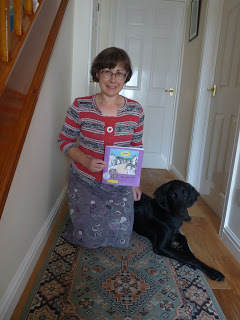
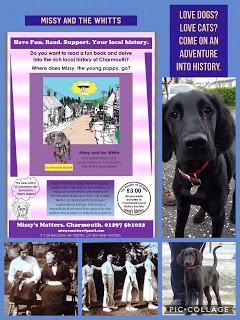
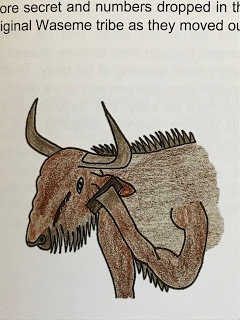
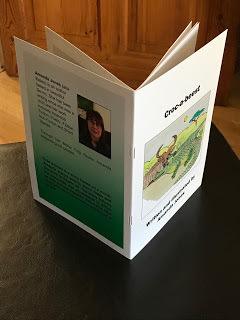
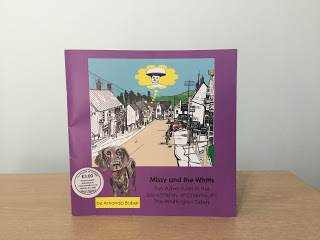
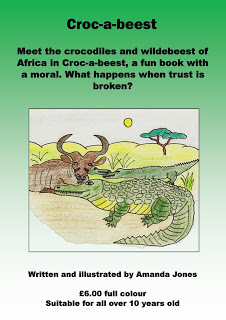 Books are available from the links below through Missy’s Matters and through Kindle. Please follow me through my profile and social media channels to keep up to date with my work. Thank you!
Books are available from the links below through Missy’s Matters and through Kindle. Please follow me through my profile and social media channels to keep up to date with my work. Thank you!Amazon: https://www.amazon.com/author/amandababer
Facebook: https://www.facebook.com/amandababerauthor
Instagram: https://www.instagram.com/amanda_jones_aka_baber_author
Instagram https://www.instagram.com/missydogbooks/
Website: http://amandababerauthor.wordpress.com/
CafeLit: http://cafelit.co.uk/index.php/meet-our-authors/2-uncategorised/114-amanda-baber
Missy’s Matters is my Conscious Crafties Shop full of creative, handmade goodies with many donating to good causes. https://www.consciouscrafties.com/crafties/missys-matters/
Facebook https://m.facebook.com/MissysMatters/
Instagram https://www.instagram.com/missysmatters/
Twitter https://mobile.twitter.com/Missysmatters
Pinterest https://uk.pinterest.com/missysmatters/pins/
Flickr https://www.flickr.com/photos/161120523@N02/
LinkedIn https://www.linkedin.com/in/amanda-baber-6094b9154/
YouTube https://www.youtube.com/channel/UCrqE6dmZJ3TXpsojksu2BFQ
November 23, 2020
Continuing our series on The Best of CafeLit contributors: Dawn Knox



1. What made you decide to write for CafeLit?
The idea that you could tell a story in 100 words intrigued me and I wanted to see if I could write one. I was thrilled when it was accepted by CafeLit – and I was hooked! But I’ve also had longer stories accepted too. I’ve continued to submit stories because I love being part of the community of the CafeLit writers and am grateful for the support of those people and of course, of Gill who is always coming up with new ideas and is so encouraging.
2. How did you pick the drink to go with your story?
I try to match the mood of the story for example if it’s a story about celebration, I might select champagne. If it’s a cosy story, I might select hot chocolate. And sometimes, a drink appears in the story, in which case, I use that. My last story which was accepted was dedicated to my mum who passed away a few weeks ago and I chose Latte, which was her favourite drink.
3. Flash or short story. Why this form for your contribution / s this time?
My last story was flash fiction – exactly 100 words written for my late mum. I like writing to a strict word limit because it makes me think more carefully about my choice of words. Each word has to be meaningful. My next scheduled story, however, is a longer story and takes several characters from my latest book, The Macaroon Chronicles, published by Chapeltown Books, and puts them in a Christmas setting.
4. What makes a good story for CafeLit?
There is an interesting mix of stories on CafeLit which makes it perfect for any reader. If the story on one particular day isn’t your cup of tea, then the story on the following day probably will be! So, if you’re a writer and you’ve written a story but you aren’t sure whether it will be accepted, why not submit and see!
5. What’s your latest writing news?
I’m thrilled that my latest book, The Macaroon Chronicles has just been launched by Chapeltown books, having been published on the CafeLit site, chapter by chapter over the last year.
This is the blurb: "The Macaroon Chronicles" is a romp through relationships amongst some anthropomorphic characters. It is one of those quirky books that awakes your sense of humour. Come and follow the fun. Take a tour of the exotic Isle of Macaroon with Eddie and his zany friends who will be pleased to show you the cheese mines, Meringue Mountains and the Custard River while they flee unscrupulous promoters, bandit badgers and low-flying seagulls. But a word of advice – don’t refer to Eddie as a chicken, he thinks he’s a bald eagle. And don’t mention Brian’s small stature, he’s rather sensitive about his size. Oh, and don’t call Brian a monkey, he’s actually a lemur. And finally, if Gideon takes a pen out of his pocket and you value your life – duck.
The Macaroon Chronicles is available on Amazon, here mybook.to/TheMacaroonChronicles
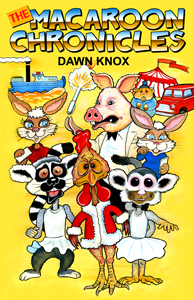
Written in a similar style and the first book in what I refer to as The Chronicles Chronicles, is also published by Chapeltown Books - The Basilwade Chronicles which is available here mybook.to/TheBasilwadeChronicles
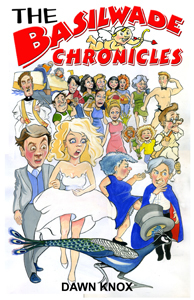
I’m currently writing a romance about a female convict, set in the eighteenth century in London and Sydney, New South Wales.
Conintuing our series on The Best of CafeLit controbutors: Dawn Knox



1. What made you decide to write for CafeLit?
The idea that you could tell a story in 100 words intrigued me and I wanted to see if I could write one. I was thrilled when it was accepted by CafeLit – and I was hooked! But I’ve also had longer stories accepted too. I’ve continued to submit stories because I love being part of the community of the CafeLit writers and am grateful for the support of those people and of course, of Gill who is always coming up with new ideas and is so encouraging.
2. How did you pick the drink to go with your story?
I try to match the mood of the story for example if it’s a story about celebration, I might select champagne. If it’s a cosy story, I might select hot chocolate. And sometimes, a drink appears in the story, in which case, I use that. My last story which was accepted was dedicated to my mum who passed away a few weeks ago and I chose Latte, which was her favourite drink.
3. Flash or short story. Why this form for your contribution / s this time?
My last story was flash fiction – exactly 100 words written for my late mum. I like writing to a strict word limit because it makes me think more carefully about my choice of words. Each word has to be meaningful. My next scheduled story, however, is a longer story and takes several characters from my latest book, The Macaroon Chronicles, published by Chapeltown Books, and puts them in a Christmas setting.
4. What makes a good story for CafeLit?
There is an interesting mix of stories on CafeLit which makes it perfect for any reader. If the story on one particular day isn’t your cup of tea, then the story on the following day probably will be! So, if you’re a writer and you’ve written a story but you aren’t sure whether it will be accepted, why not submit and see!
5. What’s your latest writing news?
I’m thrilled that my latest book, The Macaroon Chronicles has just been launched by Chapeltown books, having been published on the CafeLit site, chapter by chapter over the last year.
This is the blurb: "The Macaroon Chronicles" is a romp through relationships amongst some anthropomorphic characters. It is one of those quirky books that awakes your sense of humour. Come and follow the fun. Take a tour of the exotic Isle of Macaroon with Eddie and his zany friends who will be pleased to show you the cheese mines, Meringue Mountains and the Custard River while they flee unscrupulous promoters, bandit badgers and low-flying seagulls. But a word of advice – don’t refer to Eddie as a chicken, he thinks he’s a bald eagle. And don’t mention Brian’s small stature, he’s rather sensitive about his size. Oh, and don’t call Brian a monkey, he’s actually a lemur. And finally, if Gideon takes a pen out of his pocket and you value your life – duck.
The Macaroon Chronicles is available on Amazon, here mybook.to/TheMacaroonChronicles

Written in a similar style and the first book in what I refer to as The Chronicles Chronicles, is also published by Chapeltown Books - The Basilwade Chronicles which is available here mybook.to/TheBasilwadeChronicles

I’m currently writing a romance about a female convict, set in the eighteenth century in London and Sydney, New South Wales.



